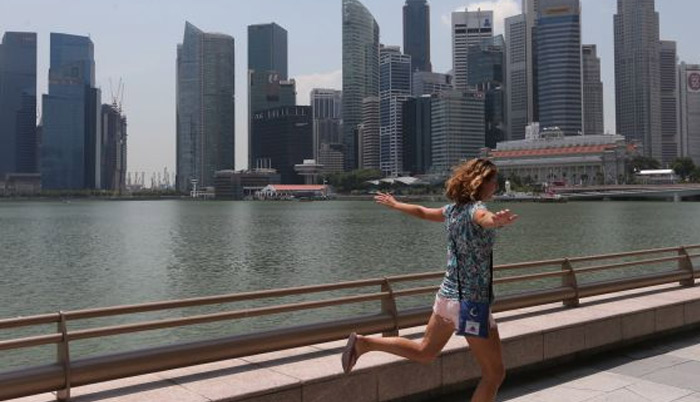Singapore: Singapore among the World’s Most Innovative Economies: Bloomberg
Singapore is the 6th most innovative economy in the world, according to the 2017 Bloomberg Innovation Index released on Tuesday (Jan 17).
The Republic’s global position was unchanged from the previous year, though it managed to usurp Japan as Asia’s second most innovative economy after the Japanese fell from 4th to 7th spot.
South Korea topped the rankings ahead of Sweden, Germany, Switzerland and Finland. Rounding up the top 10 were Denmark, the US and Israel.
Singapore ranked first in the world for tertiary efficiency, which was a study into the total enrollment of the population that had a tertiary education, together with the percentage of the labour force which had a degree, and the ratio of new science and engineering graduates against the total number of graduates and a share of the labour force.
Singapore also placed 5th for manufacturing – value added (a measure of manufacturing output as share of a country’s economy); and came in 6th for researcher concentration (defined by the number of professionals, including postgraduate PhD students, engaged in R&D per million population).
The other categories all saw Singapore placed among the top 20 — coming in 14th for R&D intensity, 12th for productivity, 17th for high-tech density, and 12th for patent activity.
In the battle of ideas, Sweden climbed to 2nd spot from 3rd last year, while Finland cracked into the top five after placing 7th last year.
Silver medal winner Sweden owes most of its rise to improvement in the manufacturing value-added metric, while Nordic neighbour Finland jumped two spots in large part because of the rise of high-tech firms in the country.
South Korea remained the big winner however, topping the international charts in R&D intensity, value-added manufacturing and patent activity and with top-five rankings in high-tech density, higher education and researcher concentration. Scant progress in improving its productivity score — now No 32 in the world — though saw its lead narrow in the past year.
The biggest loser in this year’s Bloomberg Innovation Index was Russia, plunging 14 spots to No 26, almost five times the size of the next-largest drop in the rankings. Battered by sanctions and the after-effects of a couple years of subdued energy prices, Russia’s solid scores last year in manufacturing and productivity were destroyed in this year’s tally.
Japan, where the yen is still struggling to recover from an almost two-year slide, dropped the most of any economy in the top 25, moving to No 7 from No 4 as they lost their best-in-world distinction for patent activity. Croatia also slipped three spots, to No 41 from No 38.
The US fell one spot to No 9, while Israel moved up one notch to No 10. China held its title as the strongest-ranked emerging market, at No 21, as it improved its tertiary education score while its high-tech concentration wavered.
The ranking began with over 200 economies, from which those that didn’t report data for at least six of seven categories measured were eliminated, trimming the list to 78. Bloomberg, which scores economies using factors including research and development spending and the concentration of high-tech public companies, released overall and category scores for the top 50 innovative economies.
In South-east Asia, only Malaysia (23rd) and Thailand (44th) managed to rank in the top 50.
Source: https://www.brudirect.com/news.php?id=21823


 Thailand
Thailand




